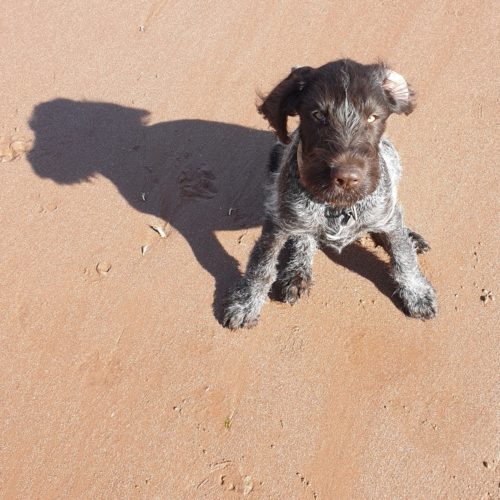
The initial meeting of you and your pet with one of our vets will be in a consultation. We know bringing your pet to the vets can be stressful and we try to minimise this with e.g. treats for dogs and by following the Cat Friendly Clinic guidelines. For some tips on making your dog or cat’s visit to us less stressful check out our pre-visit tips.
We have 15-30 minute appointments to allow time for us to discuss your concerns and examine your pet fully. Our vet consultation fee during routine working hours is £57.50, medication or further tests will be in addition to this. Our vets have a range of special interests and diagnostic equipment available. We pride ourselves on taking the time to treat your pet as an individual and will discuss their problems as a team to ensure the best outcome. We believe in continual investment in facilities and team training.
Many health concerns can be resolved in the consulting room or with some medication, but sometimes further diagnostics are required. Some tests are fairly simple e.g.
- For a lump, the vet may take a needle sample, to try and establish what the lump is.
- For eye problems (ophthalmology), the vet may need to use special dyes, or measure the pressure in the eye.
- For skin or ear problems, the vet may need to take samples to check for infection or parasites.
In other cases, more complex tests are required. We have modern digital x-ray and a full colour doppler ultrasound machine at both our Torquay and Paignton surgeries, to enable us to investigate what is wrong with your pet. Our x-ray system at Torquay was upgraded in 2022 to a DR system – this means we can take images even faster, reducing the time patients are under sedation or anaesthesia. Images taken are seamlessly linked to your pet’s computerised records. We also have ECG machines for investigating abnormal heart rhythms, we can monitor a patient’s blood pressure and are able to run most laboratory tests such as blood tests at both our Torquay and Paignton surgeries, with results available the same day. For other tests we have a daily courier service taking samples to an external laboratory for analysis and comment by specialist vets.
We have a set of the latest top-of-the-range video endoscopes at our Torquay surgery. This allows us to perform a number of procedures which will improve our abilities to diagnose problems in your pet:
- Endoscopy of the stomach, small bowel and colon. This means we can look inside these organs, for example to view a stomach ulcer. It also means we can take biopsies in a minimally invasive fashion, rather than doing open abdominal surgery.
- Bronchoscopy – this means looking inside the airways of the lungs. This allows us to diagnose certain conditions e.g. tracheal collapse in small dogs and grass awn inhalation. It also allows us to get samples of airway fluid to enable us to get a diagnosis in cases of chronic coughing, for example.
- Cystoscopy – this means looking inside the bladder.
- Rhinoscopy in dogs – this is looking inside your pet’s nose, which is of great value when trying to get to the bottom of chronic sneezing and/or nasal discharge.
- Otoscopy – this is looking inside your pet’s ear(s); video otoscopy is gold standard for full evaluation of ear disease and flushing of the ear.
- Needle scope – this is used to look inside joints.
Very occasionally, we will recommend referral of your pet elsewhere for specialist diagnostics e.g. a brain scan or treatments e.g. cataract surgery.
We will happily provide an estimate as to the probable costs of investigations and treatment, but please bear in mind that animals do not always follow the textbook so an estimate can only be approximate. We will endeavour to keep you informed as to the costs of your pet’s treatment.
